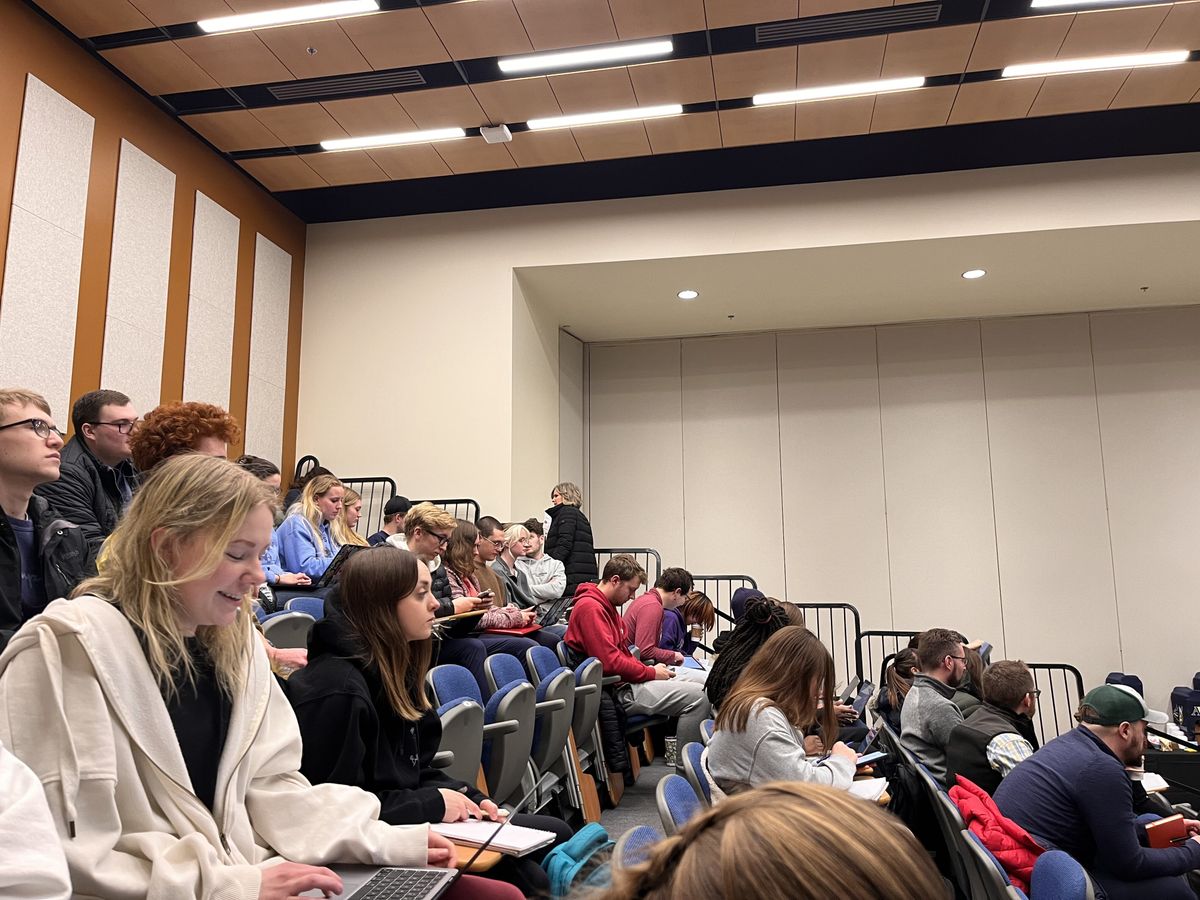Interfaith panel fosters peace

On March 2, Better Together, the Muslim Students’ Association and the Interfaith Council sponsored an interfaith panel, bringing together students to consider different paths to peacemaking.
Irfan Omar, an Indian-born professor at Marquette University, and Léocadie Lushombo, a professor at Santa Clara University from the Democratic Republic of Congo, both hosted presentations on the topic.
Omar presented “Prophetic Peacemaking: Stories from the Margins,” which discussed two stories from the Islamic tradition: one about Hagar, also known as Siti Hagar, and one of the prophet Mohammad.
“My goal in this research is to consider how stories are framed within a larger narrative,” Omar said.
According to Omar, both the stories are central to Islam, but previous interpretations were influenced by binary thinking and gendered frames of reference, especially in regard to concepts concerning war and peace.
Omar reframed the stories, arguing that “prophetic peacemaking” is peace that is lived rather than merely spoken about, and that there is power in those that do not express it through physical force.
Lushombo discussed peace through the lens of Catholic theology on war.
“I would like to start with the theology of war because my point is showing that women’s experiences and practices challenge that theology,” Lushombo said.
Lushombo explained that the Catholic tradition possesses two ways to solve conflict: just war and nonviolence. She used this context to discuss how women’s peacemaking efforts could shift the perspective on this theology.
“Positive peace — which is just peace, true peace — is truth, freedom and justice in a community that is well-ordered, a community that cares for the wounded,” Lushombo said.
Lushombo contrasted this notion with negative peace, which occurs when there is no armed fighting, but the conflict remains.
Lushombo used women’s efforts in eastern Congo as an example of how to foster positive peace. Women in the region have been working toward peace through community building, protesting and advocacy.
“Resorting to military force is sometimes necessary, to be sure, but it’s not a primary means of achieving even a negative peace,” Lushombo said.
Following the event, students had the opportunity to meet more casually with the speakers in a dinner provided by Better Together.



